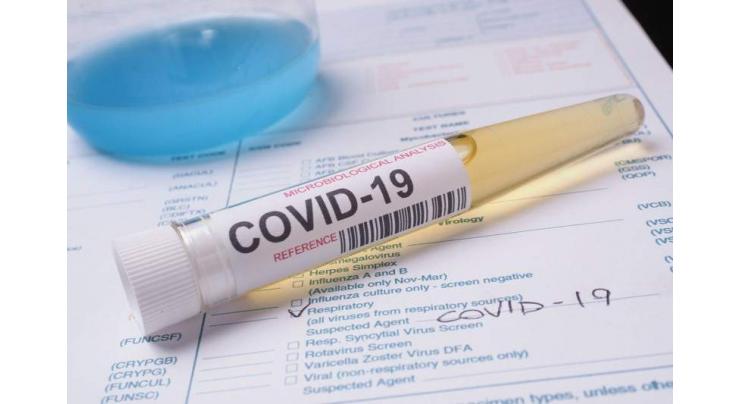
- Home
- World
- News
- New Wave of COVID in Spring Unlikely, Argentina Case to Be Indicative - Medical Scientist
New Wave Of COVID In Spring Unlikely, Argentina Case To Be Indicative - Medical Scientist
Umer Jamshaid Published February 05, 2021 | 01:52 PM

A new wave of the coronavirus pandemic in the spring is unlikely, given that COVID-19 looks more like a winter virus, David Livermore, a member of the scientific advisory board on Sputnik V and a professor of Medical Microbiology at the UK University of East Anglia, said in an interview with Sputnik
GENOA (UrduPoint News / Sputnik - 05th February, 2021) A new wave of the coronavirus pandemic in the spring is unlikely, given that COVID-19 looks more like a winter virus, David Livermore, a member of the scientific advisory board on Sputnik V and a professor of Medical Microbiology at the UK University of East Anglia, said in an interview with Sputnik.
"I would be surprised if there is a wave in the spring. I see it very much as a winter respiratory virus. My evidence for that is that it went down so much in the late spring and summer last year, and it did so also in Sweden, which had no lockdown," Livermore said when asked if vaccination campaigns going on in many countries around the world are going to prevent a new wave in the spring.
According to the specialist, the real acid test of how well vaccination campaigns work is going to be the next cold season. Since the countries in Latin America have seasons reversed, conclusions can be drawn already pretty soon from their experiences.
"We will perhaps get a test from Argentina because Argentina has the seasons reversed, so they now are in high summer going into the autumn and they are deploying [Russia's] Sputnik V vaccine. So, we will see. With the seasons reversed and Sputnik being deployed, I think it is going to be absolutely fascinating to see whether the virus comes back as they go through winter.
So, watch Argentina, I think that will be a good indicator," Livermore said.
The Latin American country started its mass vaccination campaign with the Russian Sputnik V vaccine in late December. Earlier this week, Mexico announced its local regulator had also authorized Sputnik V for importation and emergency use.
The Russian vaccine, developed by the Gamaleya Epidemiology and Microbiology Center and registered by the Russian Ministry of Health on August 11, was the world's first vaccine against the novel coronavirus. On Tuesday, peer-reviewed medical journal The Lancet published an interim analysis from the phase 3 trial of the Russian vaccine, showing its 91.6 percent efficacy against symptomatic COVID-19. The vaccine is also 91.8 percent effective for people aged over 60, and none of the rare serious adverse effects had been deemed to be associated with the vaccine, with most of the side effects being mild flu-like symptoms. The trial included over 20,000 adult volunteers, and is still ongoing, as it aims at including 40,000 participants.
Related Topics
Recent Stories

HEC reviews curricula for environmental sciences degree programme

ICC Asia looking forward to an action-packed Asia Cricket Week

Yuvraj Singh named ICC Men’s T20 World Cup 2024 Ambassador

Greece hands Olympic flame to 2024 Paris Games hosts

Two Kyiv hospitals evacuating over feared Russian strikes

World must act on neurotech revolution, say experts

Charles & Catherine's cancer diagnoses

Champions Alcaraz and Sabalenka through in Madrid Open

King Charles to resume some public duties during cancer treatment: palace

US defense chief announces $6 bn in security aid for Ukraine

Heavy rains cause damage to Spezand-Taftan railway track

Woman stabbed in Israel, attacker killed: police
More Stories From World
-
NFL will allow players to wear Guardian Cap helmets in games
5 hours ago -
Football: German Bundesliga table
5 hours ago -
Football: Italian Serie A result
5 hours ago -
Football: German Bundesliga results
5 hours ago -
US troops to leave Chad in second African state withdrawal
5 hours ago -
Plastics pollution may be solved without production cap: Canada minister
5 hours ago
-
Biden stalls on menthol cigarette ban fearing Black vote backlash
5 hours ago -
Champions Alcaraz and Sabalenka through in Madrid Open
5 hours ago -
6,000 French police to welcome Olympic torch amid bonus boost
5 hours ago -
Taiwan hit by several quakes, strongest reaching 6.1-magnitude
6 hours ago -
'Ballistic' Bairstow stars as Punjab pull off record T20 chase
6 hours ago -
Tennis: ATP/WTA Madrid Open results - 2nd update
6 hours ago